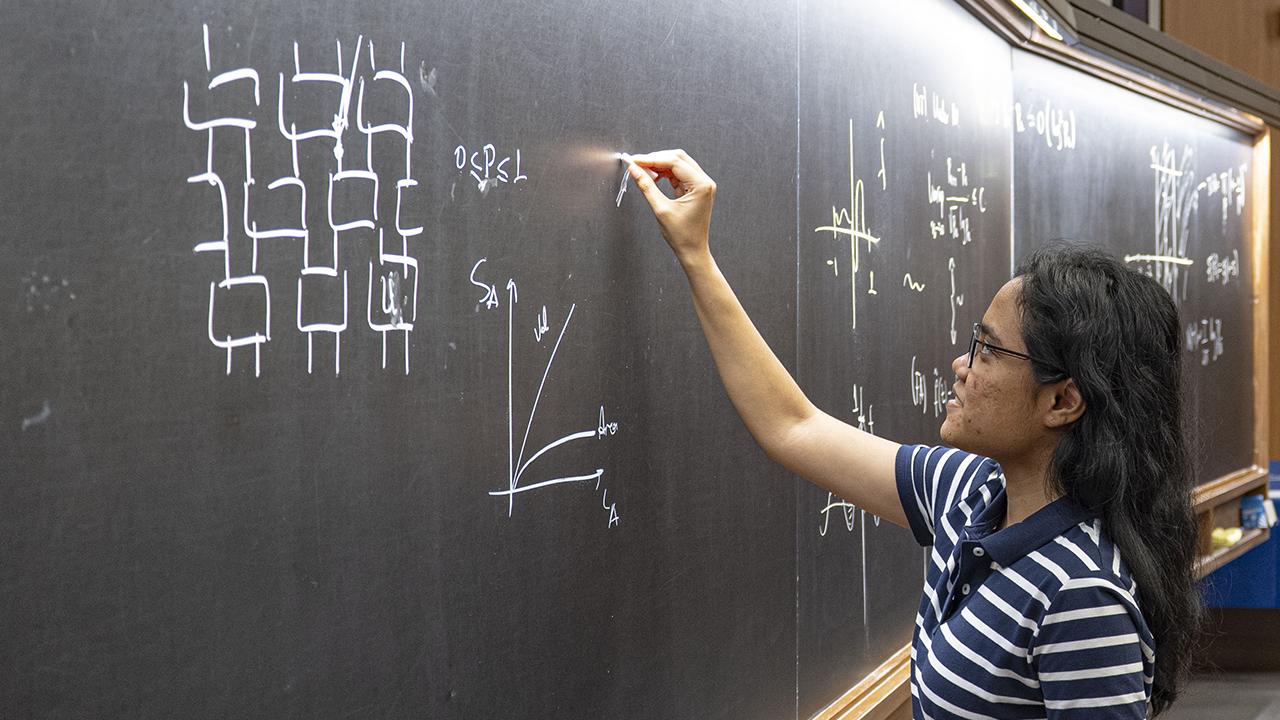
Poetri Tarabunga is a young researcher from Indonesia, deeply passionate about quantum many body systems. After having gone through the challenging times of the Covid-19 pandemic as a young diploma student at ICTP in 2020, she succeeded to become the best student in her year and to be accepted in the PhD programme that ICTP runs jointly with SISSA, supported by the Simons Foundation. Currently in the final year of her PhD, with an extraordinary track record of publications, she has already secured a postdoctoral position at the Technical University of Munich, one of the best in her field.
Tarabunga started the ICTP Postgraduate Diploma Programme in 2019 and for her final project, she on a problem about quantum entanglement. That first project inspired her to embark on a PhD under the supervision of Marcello Dalmonte, a research scientist in the ICTP’s Condensed Matter and Statistical Physics section, and to continue studying quantum many body systems, which are her main topic of interest. “In my research, I look at how quantum properties lead to novel collective behaviours, developing state of the art computational techniques. This has got many interesting applications, for example in quantum computing,” she says.
A few months into her PhD she already had enough results for her first research article. During her four years as a PhD student at ICTP, she worked on 9 different publications, 7 of which have already been accepted in peer-reviewed journals, while the others are in review.
“Poetri has been the leading author of most of her papers, including three published in top-notch peer-reviewed journals, such as Physical Review Letters and Physical Review X Quantum,” Dalmonte explains. “She has developed knowledge in a broad range of topics in theoretical physics, with her works spanning several aspects of quantum many-body physics: from providing theoretical explanations of ground-breaking experiments, to developing advanced computational algorithms, and discovering how quantum resources typically associated to quantum computing can be directly linked to collective phenomena such as phase transitions,” he continues.
“The highlight of Poetri's PhD has been the development of computational methods to evaluate "quantum magic" - a fundamental property of quantum computers, that until last year had eluded most computational approaches. These achievements speak loud about the uncanny combination of creative thinking and strong computational background acquired during her PhD,” Dalmonte adds.
In addition to the ones she forged at ICTP, Tarabunga also established collaborations with researchers in other research institutes, for example while visiting the University of Cambridge, as part of her PhD. In addition to collaborative work, she published a single-author paper, which is incredibly rare for researchers at the early steps of their careers.
“ICTP has seen Poetri grow from a promising student, to an independent and strong young researcher with a broad background and an impressive track record – as testified not only by her publication list, but also by the very strong attention her work is attracting within the physics community,” Dalmonte concludes.
















